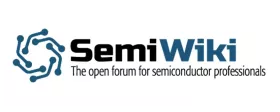Why IP Must Be Defended
A few years ago I was having breakfast with Jim Hogan at our favorite place to meet in Los Gatos. I was CEO of Polyteda and Jim was Chairman so we always had plenty to talk about. This time, however, the talk had turned to protecting a company’s intellectual property (IP). Jim had brought up the topic in the context of the looming legal battle between Sonics and Arteris. Unfortunately, I steered the conversation back to my EDA roots and the Cadence-Avant! legal battle. I would have learned more if I had just listened. Semiconductor IP is not quite like software IP as there are different methods of protection, such as mask works, and patents may be easier to spot in circuits than in code.
Recently Tela Innovations, where Jim Hogan is on the board of directors, filed two actions against a group of companies who are in the mobile phone industry alleging that these companies had illegally used Tela’s patents in their products. I was surprised by the initial reaction of some in the EDA community remarking that Tela was suing its customers. Some sites have since edited or even removed some of their earlier comments. The simple fact is that if you are an IP company and you have evidence that some company is using your IP without proper licensing you MUST defend your IP. It is obvious in other industries where stores prosecute shoplifters, so why would IP be any different? They're not your customer if they are stealing from you.
To read the full article, click here
Related Semiconductor IP
- LPDDR6/5X/5 PHY V2 - Intel 18A-P
- ML-KEM Key Encapsulation & ML-DSA Digital Signature Engine
- MIPI SoundWire I3S Peripheral IP
- ML-DSA Digital Signature Engine
- P1619 / 802.1ae (MACSec) GCM/XTS/CBC-AES Core
Related Blogs
- Why is Hard IP a Better Solution for Embedded FPGA (eFPGA) Technology?
- Why 450mm Will Be Pushed-Back Even Further
- Why USB 3.1 Certification is a "Must Have"?
- Why your DL accelerator should be replaced
Latest Blogs
- PCIe Low-Power Validation Challenges and Potential Solutions (PIPE/L1 Substates)
- Rethinking Edge AI Interconnects: Why Multi-Protocol Is the New Standard
- Tidying Up: FIPS-Compliant Secure Zeroization for OTP
- Accelerating Your Development: Simplify SoC I/O with a Single Multi-Protocol SerDes IP
- Why What Where DIFI and the new version 1.3
